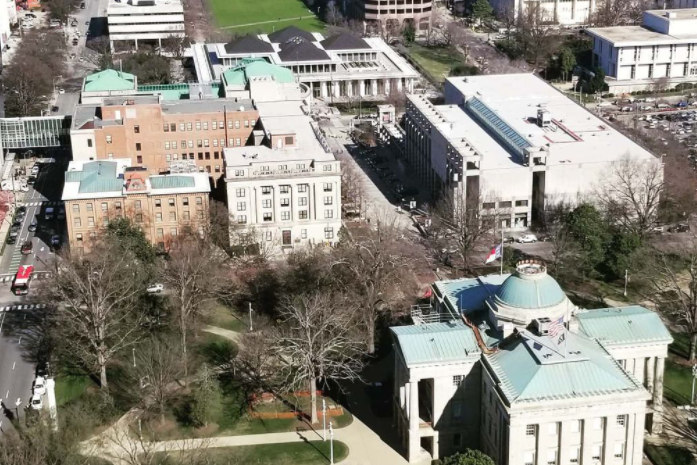N.C. Senate Releases State Budget Proposal

The 2021 session of the N.C. General Assembly reached a significant milestone yesterday, Monday, June 21, as members of the Senate unveiled their draft of the state budget. Buoyed by a strong revenue forecast and a larger-than-usual pool of federal funds from the American Rescue Plan, the proposal includes a wide range of measures that would amount to $25.7 billion in spending for FY 2021-22 and $26.6 billion for FY 2022-23.
Negotiating a two-year budget is the principal aim of the legislative long session, which kicks off the General Assembly’s legislative biennium every odd-numbered year. The long session is followed in even-numbered years by a short session, where negotiations typically focus on budgetary adjustments and key bills that remain active because they passed their chamber of origin during the long session. Traditionally, the N.C. House and Senate take turns each long session proposing a first budget draft, with the Senate’s turn coming in 2021. Due to the increased complications of the pandemic, the Senate’s draft comes later in session than is typical for a first budget draft.
The Senate is now expected to quickly move its budget draft to a final vote as early as this week, after which the House is expected to release its own budget draft (the two chambers previously agreed on a total spending number, so we expect the differences between the two budgets to lie in the line-item details). Members of the House and Senate will then negotiate a final budget for Gov. Cooper’s consideration.
Among its key measures, the Senate’s draft budget would:
- Fund salary increases and bonuses for teachers and other state employees, paid for with a mix of federal and state funds
- Set aside roughly $10.5 billion in each of the next two years to fund public K-12 education
- Increase the child tax deduction to $500
- Direct $1.5 billion in federal funding toward the JOBS and Small Business Recovery Grant program to support job creators that suffered significant economic damage or disruption during the pandemic
- Allocate $4.3 billion over the biennium for the State Capital Infrastructure Fund (SCIF) – which funds North Carolina’s ongoing capital infrastructure needs – with $3 billion for use on immediate project needs and $1.3 billion set aside to pay outstanding debts
- Carve out $12 billion for infrastructure and capital projects over the next decade
- Allocate $2.8 billion over the biennium to pay for infrastructure projects prioritized as Strategic Transportation Investments under the Strategic Mobility Formula
- Allocate $1.4 billion over the biennium to fund the General Maintenance Reserve, which supports storm recovery and routine maintenance projects
- Set aside $700 million in federal funds over the biennium to facilitate enhanced broadband investments, including $30 million for the GREAT grant program, which supports the private deployment of broadband to unserved parts of North Carolina
- Allocate billions of dollars to support key facility improvements and educational and workforce development programs at public universities and community colleges across the state
- Allocate millions of dollars in federal funds for key health care priorities, including $40 million for long-term care facilities that care for low-income residents and those with developmental disabilities
- Make numerous changes to state tax laws, increasing the zero-tax bracket to $25,500, reducing the personal income tax to 3.99 percent by 2026, and enacting other measures included in the Senate’s previously proposed tax reform package (which the NC Chamber supports) including a simplified and streamlined franchise tax assessed only on a business’s net worth base (rather than the highest of three bases)
The NC Chamber generally refrains from taking positions on comprehensive budget legislation, though the unique considerations of the pandemic – including a much higher-than-normal allotment of federal dollars – may potentially create a need for us to weigh in directly on the budget process this session. Regardless, we thoroughly analyze all budget proposals and consider them in context with our larger legislative priorities as we work to advocate for policies that empower job creators to continue growing and thriving in a post-pandemic North Carolina.